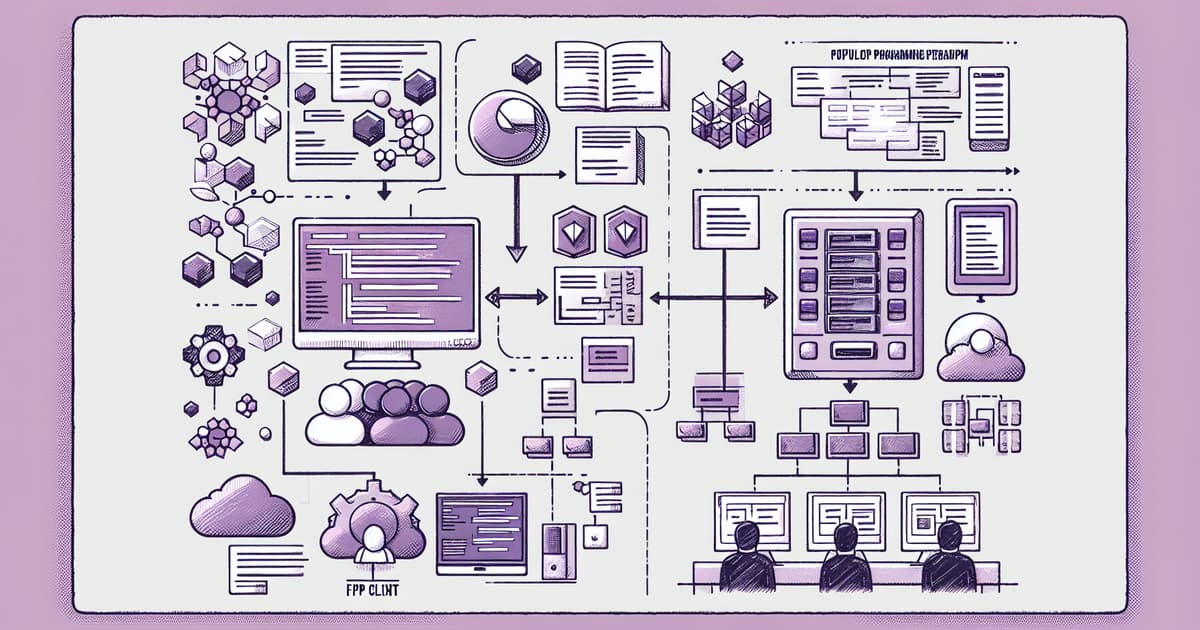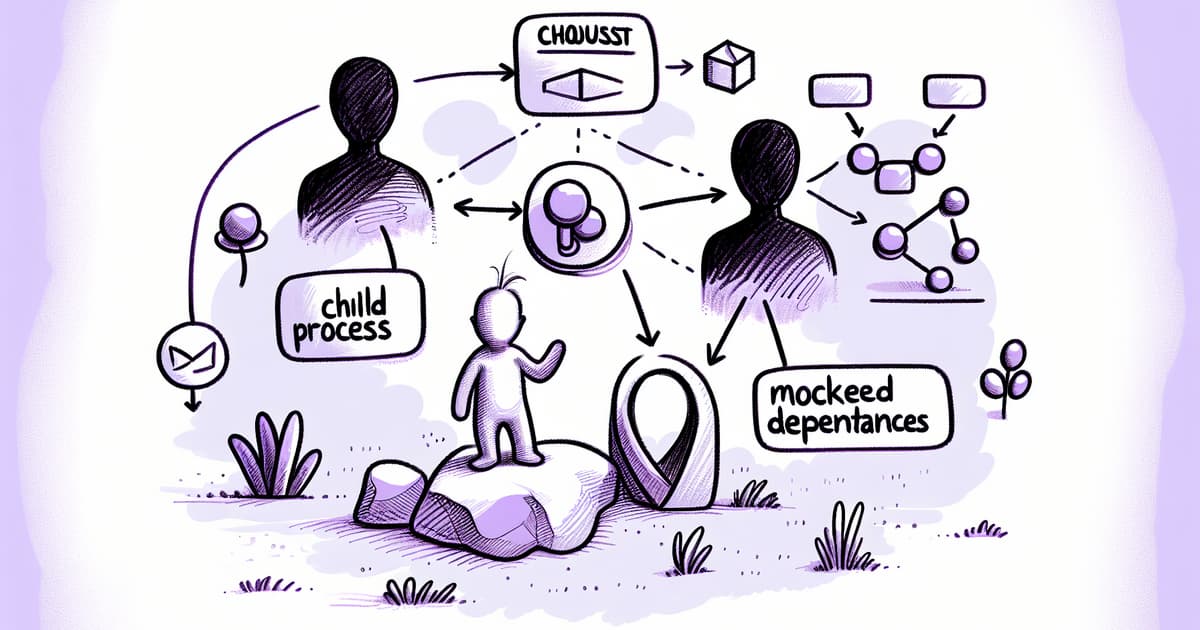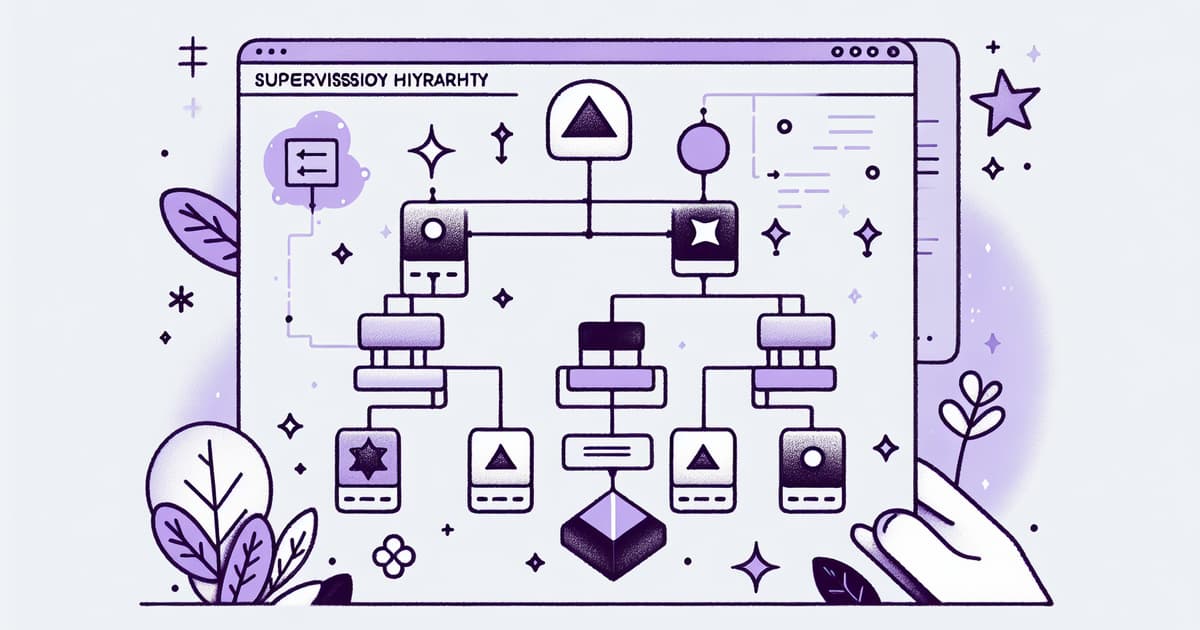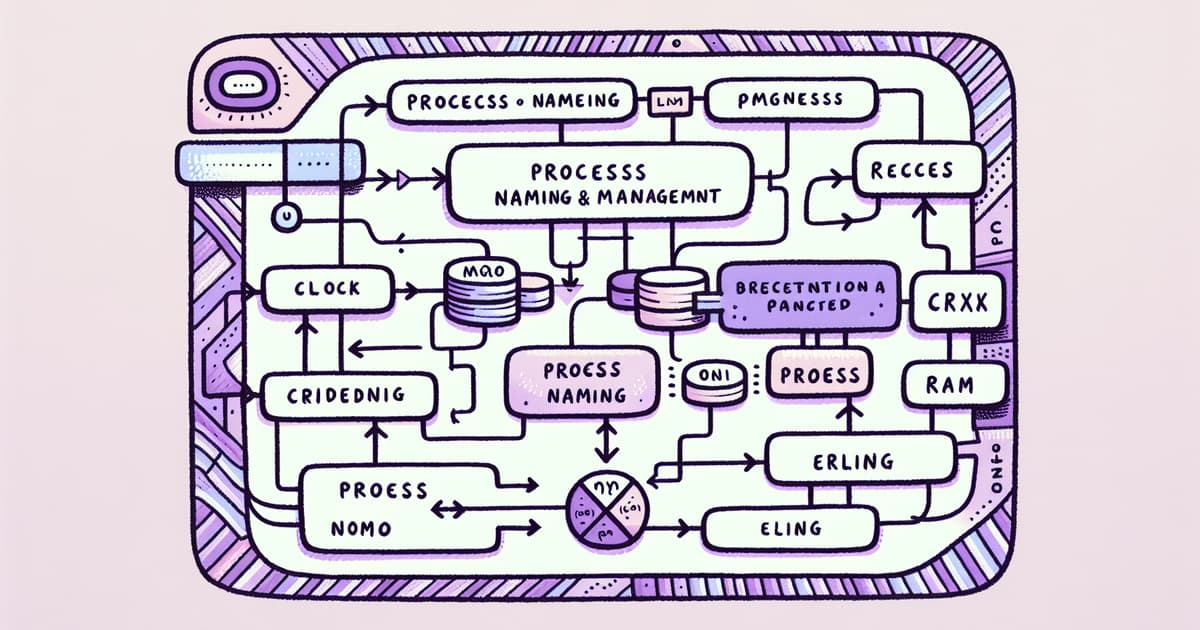We can't find the internet
Attempting to reconnect
Something went wrong!
Hang in there while we get back on track
GenServer

The Elixir programming language, well-suited for building scalable and maintainable applications, is gaining popularity in various domains. Its concurrency model, built around the actor paradigm through GenServers, enables developers to create systems that are resilient and fault-tolerant. GenServer, a behavior module in Elixir, plays a crucial role in creating stateful services that can handle numerous concurrent requests efficiently.
Understanding GenServer and its place within the OTP framework is essential for developers looking to leverage Elixir's full potential. In practical terms, GenServer is used to manage state, handle synchronous and asynchronous requests, and implement server functionality. It is the cornerstone of concurrency in Elixir, allowing for the development of long-running processes that maintain a state.
Observability and debugging are also strengths of the language, with tools specifically tailored for the BEAM VM, providing valuable insights into process behavior and performance. Furthermore, mastering Elixir often involves delving into Erlang, the underlying language that Elixir compiles into, which provides a deeper understanding of the BEAM's capabilities.
The ecosystem promotes a strong culture of monitoring, with Elixir applications commonly running on clustered nodes, increasing the importance of understanding process management, supervision trees, and restart strategies. With Elixir's functional programming approach, developers describe successful implementations in domains ranging from web development using Phoenix LiveView to game development, indicating its versatility.
Adopting Elixir goes beyond syntactic familiarity; it's about embracing a new way to think about application design. This includes managing states without the traditional reliance on object-oriented paradigms, utilizing message passing for communicating between processes, and employing more sophisticated methods like GenStage and Flow for message processing.
Furthermore, the community is vibrant, contributing tools like static code analysis with Credo or Plug-ins for formatting. Additionally, Elixir's pragmatic approach to real-world problems is evident in projects that merge AI or web scraping capabilities into the language's eco-system.
As Elixir continues to grow, José Valim and other core team members introduce enhancements, like improved compiler diagnostics and anti-pattern references, to refine the developer experience. Seasoned programmers bring their expertise into the ecosystem, presenting how to handle connections, viz TCP, or secure sensitive data within processes. For aspiring Elixir professionals, resources range from sensible advice on getting started to nuanced discussions on complex system design. Finally, the forward-looking aspect of Elixir comes to light with developers encouraged to explore new tools aimed at distributed systems which play into the language's strengths.

A Quick Overview of Caller Tracking in Elixir
Alex Martsinovich discusses caller tracking in Elixir, a convention that helps identify related processes and manage access to owned resources in tests.

Optimizing Message Publishing in Elixir with RabbitMQ
In this article, the author discusses creating wrappers around RabbitMQ for message publishing in Elixir, emphasizing the importance of reliable message delivery and efficient publisher confirmations.

Improving Elixir Test Suites with Asynchronous Testing
Andrea Leopardi shares insights on enhancing test suite efficiency at Knock by focusing on asynchronous testing methods to combat slow and flaky tests.

Creating a Distributed Hello World System in Elixir
Vince Urag explores the concept of a distributed 'Hello World' application using Elixir, revisiting this classic beginner's project with more advanced techniques.

Creating a Distributed Rate Limiter in Elixir Using HashRing
Johanna Larsson explores the process of building a distributed rate limiter using Elixir and the HashRing library, highlighting the power of message passing between nodes.

Exploring OTP and Key Concepts for Effective Application Development in Elixir
In this presentation by Alvaro Callero at ElixirConf US 2024, the focus is on the fundamental concepts of Elixir processes, Behaviours, Agents, Tasks, and GenServers, emphasizing their importance for concurrency and fault tolerance in application development.

Building an FTP Client in Elixir with GenServer
Romario López presents a guide on implementing an FTP client in Elixir using GenServer, addressing the need to monitor file uploads and notify processes upon their availability.

Synchronizing Asynchronous Operations in GenServer with Elixir
This article explains how to synchronize operations in Elixir using GenServer by leveraging message-passing and callbacks.

Improving Elixir FTP Client Functionality with GenServer
The author discusses potential improvements for an Elixir FTP client implemented with GenServer, particularly regarding timeout issues with slow FTP servers.

Strategies for Effectively Testing GenServers in Elixir
This article explores proper design and testing methodologies for GenServers in Elixir, addressing common pitfalls and offering strategies to simplify testing.

Implementing Rate Limiting in Elixir with Leaky and Token Buckets
Alex Koutmos discusses rate limiters, their purpose, and how to implement two types in Elixir: the leaky bucket and token bucket algorithms, utilizing GenServer and other Elixir features.

Using GenServers for Distributed State Management in Elixir Applications
Pulkit Goyal discusses managing distributed state in Phoenix and Elixir using GenServers, highlighting their importance in building resilient applications.

Exploring AMQP with Elixir: A Practical Guide
James Carr discusses extending the interval timer to publish and consume messages using AMQP in Elixir.

Creating a Multi-Process Interval Timer in Elixir
James Carr presents a tutorial on how to write a multi-process interval timer using Elixir, detailing the setup of a GenServer to manage concurrent tasks.

Creating Home Assistant Automations with Elixir GenServers
In this article, the author explores how to create automations for Home Assistant using Elixir's GenServers. The post covers the basics of connecting to Home Assistant's WebSocket API, utilizing GenServers for concurrency, and implementing various automation techniques.

Exploring OTP State Machines vs GenServer by Ben Murphy
Ben Murphy explores how OTP's state machine can simplify and outperform GenServer when managing complex systems.

Exploration of use and __using__ Macros in Elixir
This article delves into the mechanisms and usage of `use` and `__using__` macros in Elixir, explaining how they inject code during compile time to promote code reuse and maintainability.

Building an Air Quality Measurement App with Rustler and Elixir
Code & Stuff provides a walkthrough on building an air quality measurement app by integrating Rust and Elixir using the Rustler, GenServers, and Phoenix PubSub.

Transforming a 1930s Rotary Phone into a Modern Cellphone Using Elixir and Nerves
Bryan Green presents VintageCell, a project leveraging Elixir and the Nerves framework to convert a vintage rotary phone into a modern cellphone. This project integrates a Raspberry Pi Zero and WaveShare SIM7600G-H 4G modem.

Handling Corner Cases in GenServer.call
In this video, the instructor discusses corner cases for GenServer.call, emphasizing its importance for application stability on the Erlang VM. It builds on the previous video about GenServer.call basics.

Guide on Testing Child Processes with Mocked Dependencies in Elixir
Benoit Ducharme provides a solution for managing child processes with mocked dependencies in Elixir tests, addressing common issues encountered.

Analyzing the Best In-memory Storage Options for Read-only Scenarios
Andrew Berrien explores various in-memory storage solutions suitable for read-only scenarios in Elixir applications. The performance metrics for different storage options including modules, :persistent_term, :ets tables, and GenServer are compared across varying data sizes.

Evaluating the Use of Processes in Phoenix Applications
In this talk recorded at Code BEAM Europe 2023, Brian Underwood presents a demo of a ride-sharing application to investigate the need and performance of different process architectures in Phoenix and PostgreSQL applications.

Managing Players in a Multiplayer Card Game with Elixir
ShoddyStreet677 seeks advice on handling dynamic player joining and leaving in their Elixir-based card game, Callbreak.

Comprehensive Guide to Elixir Supervisors
Mạnh Vũ discusses the supervisor model in Elixir and its advantages over other languages, particularly focusing on how it enhances process control and reliability in applications.

Overview of In-Memory Storage Solutions in Elixir
Andrew Berrien explores various in-memory storage solutions available in Elixir, including :ets, GenServer, dynamic modules, and :persistent_term.

Modelling Supervision Hierarchy for Stateful Game Objects in Elixir
StayFreshChzBag explores potential structures for supervising stateful game objects in an Elixir-based game/simulation environment, examining options such as using GenServers and dynamic supervisors.

Guide to Replacing GenEvent with Supervisor and GenServer
José Valim discusses the downsides of GenEvent and presents a solution using Supervisor and GenServer for better performance and maintainability in Elixir.

Building a Custom Analytics System with Ecto and Elixir
José Valim outlines the development of a custom analytics system for the Dashbit website using Ecto upserts, Elixir processes, and registries.

Comparing GenServer with Object-Oriented Programming Objects
AverageSkilledCoder wonders if using GenServer in a manner similar to Java OOP objects is incorrect.

Integrating Phoenix LiveView with Airtable Backend
Mark Ericksen hosts an episode featuring Ricardo Garcia Vega discussing how a Phoenix application can be integrated with Airtable, leveraging tools like ETS tables, GenServers, and LiveView for real-time updates.

Interview with Jay Ashe on Elixir Usage at Cava
Jay Ashe discusses Cava's Elixir projects, deployment strategies, advantages, and challenges in using Elixir.

A Podcast Episode on Learning to Code with Elixir
Beam Radio hosts discuss learning to code, with a focus on Elixir and functional programming.

Creating a MIDI Sequencer Using Elixir
Speaker Dino discusses SeqEx, a MIDI sequencer project built with Elixir.

Implementing Websocket Client Functionality in Elixir
ArjaSpellan is seeking advice on implementing websocket clients in Elixir, exploring available libraries and expressing a requirement for JSON RPC communication.

Process Naming and Management in Elixir and Erlang
Tee Teoh explains the benefits and mechanisms of naming long-running background processes, or 'daemons', in Elixir and Erlang applications, and explores using alternative process registries for dynamic process management.

Design considerations for modeling real-world entities as actors in Elixir
Sexy-Swordfish shares their thoughts on designing an actor-based system in Elixir to represent real-world entities in complex applications, using examples from social networks and telephony systems.

Using Elixir Only as a Conventional Programming Language
The author shares their experience of working with Elixir in a company that doesn't utilize OTP or distributed Erlang features. Despite the language's advanced functionalities, the company relies on basic syntax and standard programming practices.

Understanding GenServer Name Registration Techniques in Elixir
In this comprehensive guide, Meraj Molla explores the various methods of registering GenServer names in Elixir to facilitate inter-process communication and management within local and distributed Erlang systems.

In-depth Guide to Elixir GenServer Functionality
An extensive guide on GenServer, a behavior module in Elixir for creating concurrent, stateful processes based on the Erlang OTP framework.

Seeking Project Ideas for OTP Practice
lukivan8 is looking for project suggestions to practice the basics of OTP (Open Telecom Platform), with a focus on understanding concepts such as supervision trees and GenServers.

Assistance Requested for Elixir Book Mars Rover Example
Anti_Duehring is seeking help with the book 'Elixir Succinctly' by Emanuele DelBono, specifically for missing source code related to `RegistryHelper` methods in a sample Mars Rover application.

Troubleshooting Elixir Performance on Multi-Core Systems
FundamentallyBouyant inquires about performance problems encountered on an Elixir cluster consisting of around 10 EC2 machines, each running numerous long-running GenServers and other processes, leading to high run queue lengths and spiking latencies despite low CPU usage.

Implementing Asynchronous Telemetry in Elixir
Christian Alexander discusses how to implement asynchronous analytics tracking in Elixir applications using the Telemetry library and GenServer to improve performance and app responsiveness.

Elixir Meetup Talk on Understanding GenServers
MisterMiqs presents a talk from the 25th Elixir Meetup featuring Sigu Magwa, focusing on 'Understanding Elixir GenServers.'

Integrating Python Libraries with Elixir
Maksymilian Jodłowski explores the utilization of Python libraries in the Elixir application by using ErlPort, which facilitates communication between Elixir and Python. This approach is helpful when specific libraries are missing in Elixir or when a developer prefers to use the abstractions from Python libraries they are more familiar with.

Understanding Process Communication in Elixir
Alvise Susmel explains the fundamentals of message passing in Elixir, comparing it with the shared memory concurrency model in other programming languages.

Sending Structs in GenServer Calls
mucho_mass is trying to build a key-value store using GenServer and is encountering a problem with passing a struct as a parameter.

Debugging An ETS-Based Sensor Simulator in Elixir
hezwat is exploring how to use Elixir's ETS for sensor data simulation and encounters unexpected early termination in their code. They seek assistance in debugging and possibly salvaging the code.

Understanding :gen_statem in Elixir
Cameron Duley delves into the usage of the :gen_statem behaviour in Elixir and sheds light on when and how to use it effectively, especially in handling network connections and protocols.
© HashMerge 2026